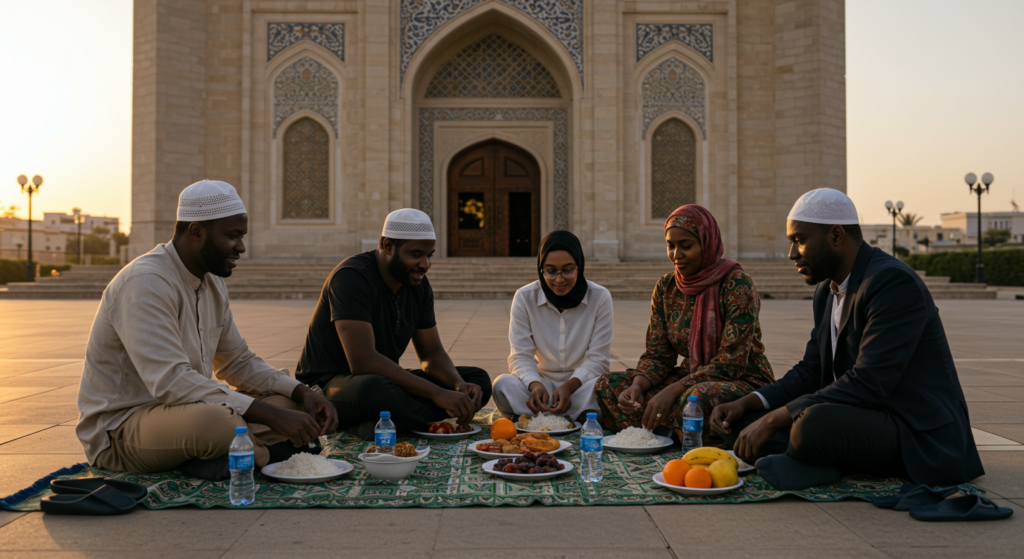
Breaking fast during Ramadan isn’t just about food; it’s also about faith, community, and kindness. Hosting Iftar gatherings allows fasting Muslims to come together, support those in need, and earn spiritual rewards through charity.
But with food prices soaring, hosting an Iftar gathering has become an expensive act of devotion.
With budgets stretched thin, how much does it really cost to feed a fasting community in today’s Nigeria? We spoke to four young Nigerians who are finding creative ways to make it happen, no matter the cost.
“We’ve raised ₦1.4 million but are still pushing to hit ₦3 million before our March 22 Iftar.”— Muhammed, 20, Student.
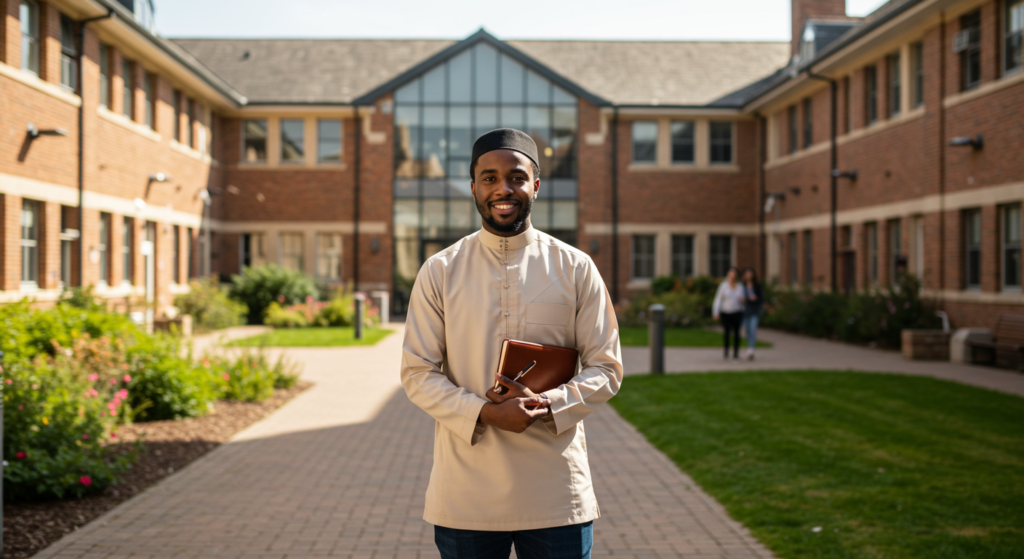
I’m a fourth-year mechanical engineering student and the chairman of the Sanusi Hostel Muslim Community Committee at the University of Ilorin. Every year, my team and I organise a grand Iftar gathering for fasting students, ensuring they have a proper meal to break their fast and bring smiles to their faces.
As the Qur’an says: “The example of those who spend their wealth in the way of Allah is like a seed of grain that sprouts seven ears, and in every ear there are a hundred grains. Thus Allah multiplies the action of whom He wills.” (Qur’an 2:261)
But hosting Iftar comes at a cost.
Last year, we spent ₦950,000 feeding 700 people against a ₦1 million budget. Our caterer charged ₦800 per plate, totalling ₦560,000. We didn’t have to pay for protein because someone generously donated enough meat. Fruits cost ₦200,000, zobo and drinks ₦150,000, and logistics around ₦30,000. We even had ₦100,000 left over for the mosque.
With rising costs and the added expense of buying meat ourselves this year, our budget has jumped to ₦3 million for 800 people.
We started planning in November 2024. We have 30 people on the committee, and each person was responsible for bringing in at least 10 donors. We’ve raised donations from 300 people. Also, each committee member has been paying monthly dues of ₦1,500 each. In addition, we’ve been running small ₦100 and ₦200 donation challenges, sending out letters to potential donors, and using our social media platforms to spread the word.
We’ve raised ₦1.4 million, but we’re still pushing to meet our target before our Iftar gathering on March 22.
While we’ve done a cost analysis, we haven’t fully allocated our budget since there’s still time to raise funds. If we don’t meet our target, we may have to cut back on portions, remove some extras, or even reduce the number of people we can host.
Last year, our Iftar was the second-largest in the entire school. We plan to go even bigger this year if we hit our target.
“In 2023, I could feed 500 people with ₦400,000. Now, that amount barely covers 300 meals.” — Nurayn, 22, Student.
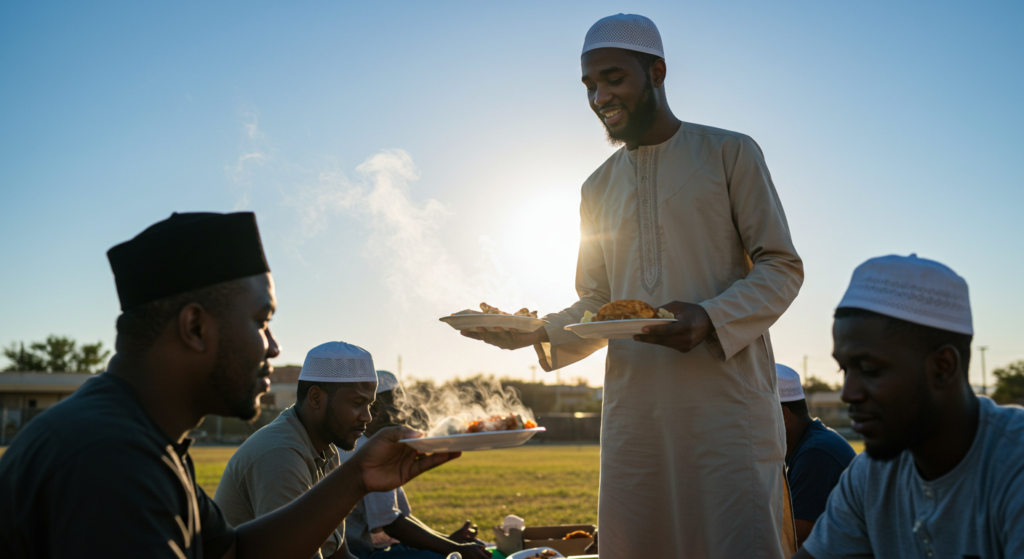
I’m a 500-level Law student at the University of Ilorin. I also run the , a charity organisation focused on helping vulnerable people: women, children, and those in need. But during Ramadan, we shift gears to cater to all fasting Muslims, as encouraged by the Hadith:
“Whoever provides food for a fasting person to break their fast will have a reward like theirs, without diminishing their reward in the least.” (Sunan al-Tirmidhi, Hadith 807).
However, the rising cost of food has made hosting Iftar gatherings increasingly expensive. In 2023, I could feed 500 people with ₦400,000–₦450,000. Now, that same amount barely covers 300 meals.
On the third day of Ramadan, we hosted an Iftar dinner that cost ₦250,000 for just 150 people. We kept it simple: jollof rice, eggs, drinks and dates. But even that stretched our budget.
But despite these price hikes, we juggle our plans, make necessary changes, and work with whatever we have.
When I first started in 2023, I covered the costs myself, with support from family and friends. Over time, I began to have volunteers and occasional donors, but we still don’t have permanent sponsors.
We rely on crowdfunding, personal outreaches and social media campaigns to raise funds. As students, pooling resources is tough, but our primary motivation is the blessings that follow acts of kindness. It’s not easy, but we’ve made it work so far, Alhamdulillah (praise be to Allah).
If I had a bigger budget, I’d feed at least 500 people every single day of Ramadan. But we do what we can, and it’s fulfilling.
“This year, our goal is still ₦5 million, but we’ve only raised ₦2.4 million.” — Kabeerah, 23, Founder.
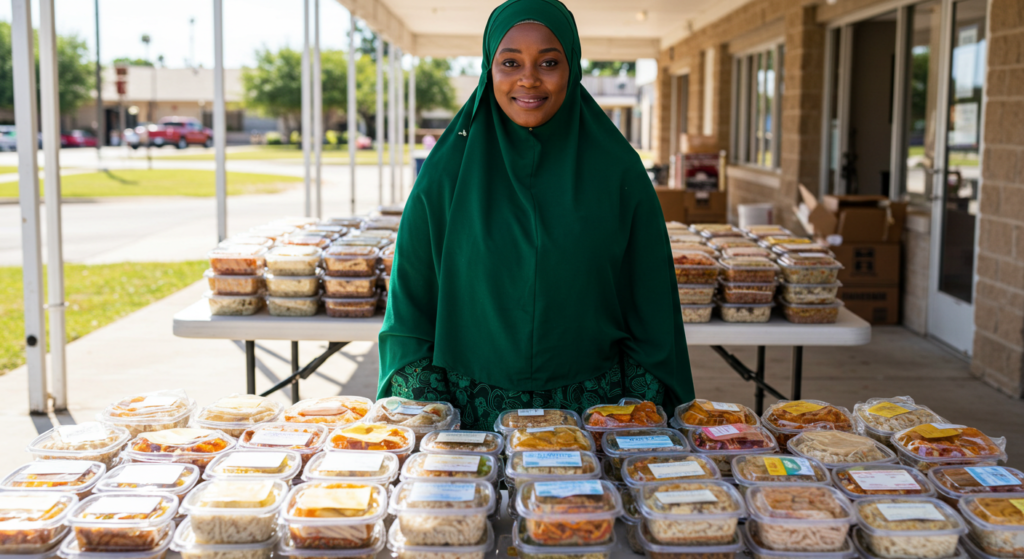
This is my third year running the (pronounced K-AID). Our Iftar project started in 2023, and we fed 500 students and 50 widows. The total budget was 2.5 million, with ₦1 million for the Iftar project and ₦1.5 million for the widows drive, and we actually met our target.
But as food prices skyrocketed, so did our budget. In 2024, we aimed for ₦5 million but barely hit ₦3 million. This year, our goal is still ₦5 million, but we’ve only raised ₦2.4 million. We fund the Iftar project through individual donations, but raising funds is the hardest part. I’ve lost count of how many times I’ve wanted to give up. The economy is tough, and yearly donation requests are exhausting for people. We’ve tried reaching out to a few organisations this year, and only one has donated so far.
The Iftar project itself is straightforward. We feed 500 students over the last 10 days of Ramadan: 50 students per day. We have volunteers online and offline who help with publicity and logistics. Every evening around 5 p.m., after the Asr prayer, we gather at a meeting point, package rice, chicken, dates, and water, then head to different hostels to distribute them. We try to switch up the locations yearly, so it’s not the same hostels getting food all the time. We also distribute food packs to 50 widows on the 27th and 28th day of Ramadan. We buy three bags of rice, 50 litres of groundnut oil, and other essential cooking ingredients, then divide them into 50 equal portions for distribution.
For me, the Iftar project is more than just giving people food. I know what it’s like to struggle. That’s why Kaid Charity exists: to ensure students, widows, and orphans feel cared for.
Our reach is limited right now. I dream of a day when we can put up billboards and reach a wider audience.
But no matter how difficult it gets, the most rewarding part is knowing we’re making a difference in the Muslim community. Every act of kindness in Ramadan counts, and it’s fulfilling to know that our efforts are helping people and bringing us closer to Allah’s blessings.
“Usually, I set a target, fundraise, and my sponsor tops it at the last minute. But this year, he’s been quiet.”— Abdulrahman, 23, Business Owner.
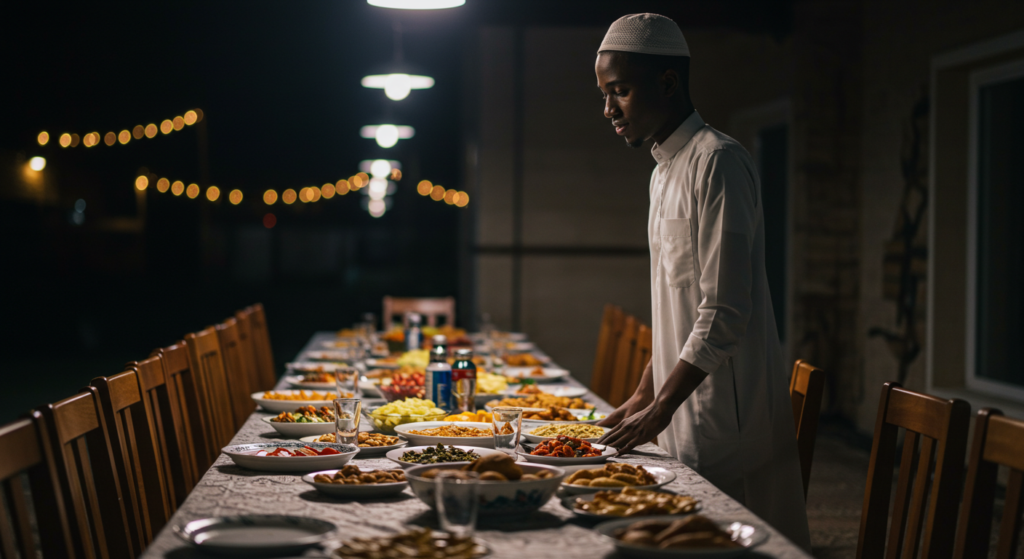
I host Iftar gatherings because I want students to feel special. I call it “The Grand Iftar” because it’s more than just a shared meal; it’s a meaningful experience.
I schooled in the North, and I noticed that students struggle with access to food and spaces where the Ramadan experience feels special. That’s why I host Iftar gatherings, where Muslims come together to share meals and listen to Islamic lectures, reflect, and engage in mentorship discussions about faith and life in general.
I wanted an Iftar that felt intentional, not just another meal handout. I wanted a space where anyone, regardless of background or sect, could come together, share a meal, and feel a sense of belonging. And beyond all that, it’s also about the rewards that come with feeding people during Ramadan.
I started in 2021 with just ₦7,000, which got me about 80 wraps of moi moi and pap for family and friends. The next year, I bought ready-made food for about 100 people from a restaurant. At the time, a plate of rice and chicken cost ₦700. The following year, the price per portion jumped to ₦1,700. That wasn’t sustainable, so I reached out to my friends, and we started cooking the Iftar meals ourselves.
Last year, I spent about ₦180,000 to host Iftar. This year, I’m looking at ₦900,000 if I want to do it properly. I have three options: ₦250,000 to feed 200 students, ₦550,000 for 400 students and ₦900,000 to host 700 students, which is my actual target.
But fundraising has been slow. I graduated last year, so between running my business and trying to raise money, it’s been a struggle. So far, I’ve only raised ₦20,000 from one person.
Usually, my main sponsor steps in at the last minute to cover the shortfall. But this year, he’s been quiet. I contacted him when Ramadan started this year and told him I had gotten ₦30,000 in promises, and only ₦20,000 had come in. And for the first time, my sponsor didn’t say anything for a while. A few days later, he got back to me and asked about the latest possible sign that I could still make the Iftar happen, and I told him I could probably work towards the 15th of Ramadan.
It’s been a stretch of silence ever since.
So now, I’m just waiting for his next reply. If the money doesn’t come, I’ll have to scale down. Maybe round up the funds to ₦50,000 from my own pocket and host a small gathering to keep the tradition alive, especially because Allah loves little, consistent good deeds.
But I still have hope. If things work out, we’ll kill a ram or a cow the day before and cook more food. That’s still in the plan.
If I don’t hit my target, I’ll stick to rice and fish. To cut costs further, I’d switch to a Hausa-themed Iftar. We’d serve Masara (corn), soup, maybe Zobo, and there’d be a “mai suya stand” for self-serve suya. I haven’t done a proper cost analysis yet, but it seems cheaper than cooking full meals.
For now, I’m just hoping the money comes in.
Join 1,000+ Nigerians, finance experts and industry leaders at for a day of real, raw conversations about money and financial freedom. !



